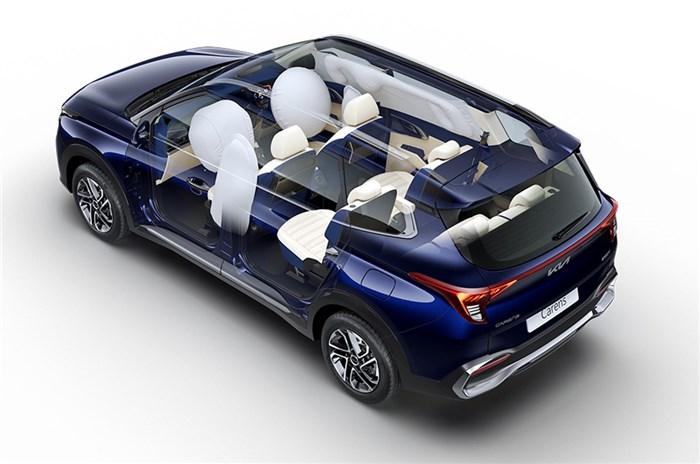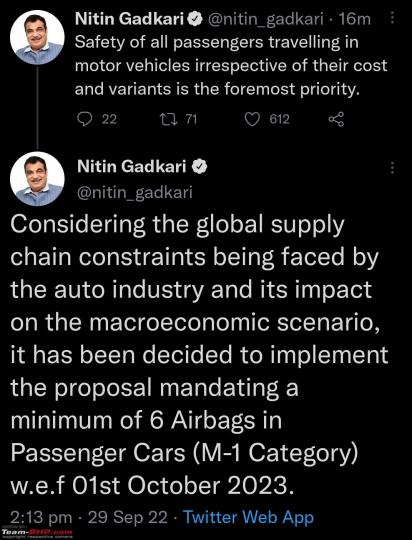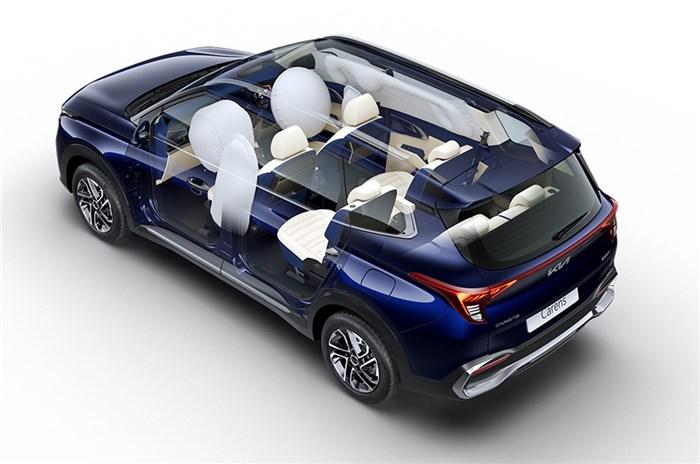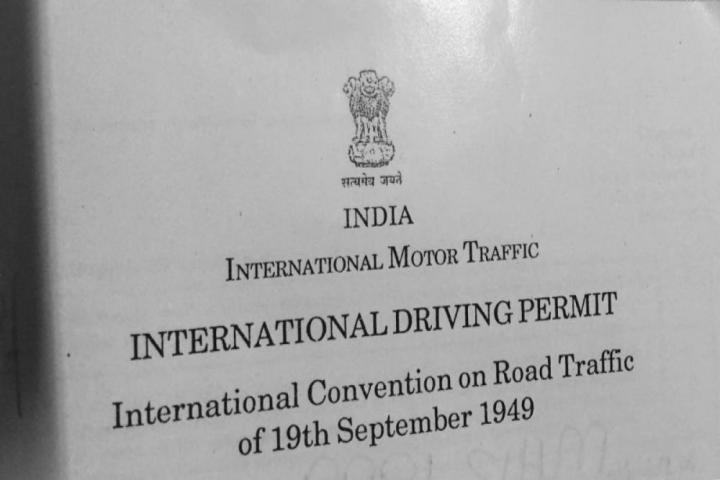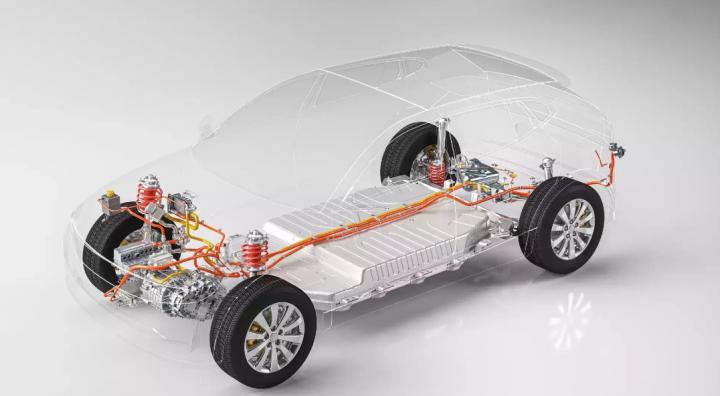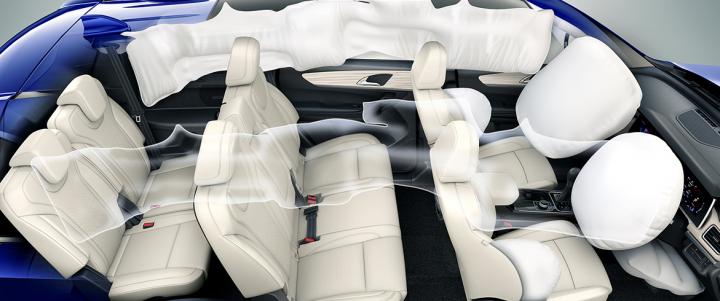News
6 airbags to be mandatory in cars from October 1, 2023
The new regulation was due to roll out on October 1, 2022.
The government of India has deferred its proposal to make 6 airbags mandatory for all M-1 category vehicles for one year.
The minister for road transport and highways, Nitin Gadkari, has stated that the new regulation will now come into effect from October 1, 2023. He added that the decision to defer the implementation of the proposal was taken due to the global supply chain constraints faced by the auto industry.
A draft notification to make 6 airbags mandatory for M-1 category vehicles was approved by the government in January this year. The new regulation was due to roll out on October 1, 2022.
News
Govt. could defer the rollout of 6 airbag rule in India
The government also plans to make rear seat belt reminders mandatory in M and N category vehicles.
The government of India is likely to delay the implementation of the 6-airbag rule.
According to a media report, the government is still in discussions with stakeholders and wants to implement the rule as soon as possible. However, with the October 1 deadline fast approaching, the rollout is expected to be deferred.
A draft notification to make 6 airbags mandatory for M1 category vehicles was approved by the government in January this year. A few months later, the Minister for Road Transport and Highways, Nitin Gadkari, confirmed that all cars manufactured from October 1, 2022, would be equipped with 6 airbags.
The government also plans to make rear seat belt reminders mandatory in M and N category vehicles. The decision comes in the wake of the recent accident that claimed the life of Cyrus Mistry, the former Chairman of the Tata Group.
Source: Business Today
News
Govt. standardises International Driving Permit (IDP) process
An IDP is required under the Convention on International Road Traffic of 1949.
All states across India will now follow a standard process for issuing International Driving Permit (IDP).
Until recently, the IDP issued by the states used to differ in format, size, pattern, colour and other parameters. This was causing difficulties to citizens in foreign countries as there was no uniformity in IDPs issued in India. The Ministry of Road Transport and Highways now has a mechanism in place that will facilitate states to issue a standard IDP.
The government has also made a provision for a QR Code, linking the IDP with the Driving License. A comparison of vehicle categories across Conventions and Central Motor Vehicle Rules, 1989 has been added, along with helpline numbers and email.
An IDP is required under the Convention on International Road Traffic of 1949 (Geneva Convention).
Source: Economic Times
News
Govt. to issue standards for EV batteries & components
The government will issue standards and testing protocols for electric 2-wheelers and 4-wheelers simultaneously.
The government of India plans to introduce new mandatory standards for EV batteries, components and their testing. The new standards and testing protocols will come into force in 2-3 months.
Nitin Gadkari, Minister for Road Transport & Highway, has stated that companies failing to comply with the standards and regulatory norms will have to pay heavy penalties.
Reports suggest that the government will issue standards and testing protocols for electric 2-wheelers and 4-wheelers simultaneously. It will be mandatory for manufacturers to sell EVs with batteries and components that comply with the standards.
Under the new framework, authorities will pick up random samples of finished batteries from factories for tests to find whether the companies are complying with the standards.
Source: ET Auto
News
Audi India seeks import duty cut on electric cars
Audi currently offers the e-tron, e-tron Sportback, e-tron GT and the RS e-tron GT in India.
After Tesla, now Audi wants the government of India to slash the import duty on electric cars. The carmaker has sought a 3-5 year relaxation on the import of luxury EVs.
Audi believes that the import duty on EVs should be fixed at 5%, instead of the 200% that is currently charged on all imported cars. A 3-5 year window would enable the carmaker to test more global models in India and eventually be locally assembled.
Audi India head, Balbir Singh Dhillon further added that the company is not seeking permanent relaxation of import duty as it respects the government’s intention to promote localisation. That being said, a temporary relief would be crucial to make a viable business case in order to bring more EVs from Audi’s global portfolio into India.
At present, Audi offers four all-electric models in India. These include the e-tron, e-tron Sportback, e-tron GT and the RS e-tron GT. Prices start at Rs 1.01 crore (ex-showroom).
Source: ET Auto
News
Govt. proposes Fuel Consumption Standards for all vehicles
Tipper trucks with a GVW of over 3.5 tonnes have been excluded from this.
The Ministry of Road Transport & Highways (MoRTH) has issued a notification proposing the implementation of Fuel Consumption Standards for all vehicles from April 2023.
The notification proposes an amendment to Rule 115 G of the Central Motor Vehicle Rules to include light, medium and heavy vehicles from several categories, including M2, M3, N2 and N3.
As per the notification, all vehicles manufactured in India or imported into the country will be have to undergo tests to check for compliance as notified under the Energy Conservation Act. Tipper trucks with a GVW of over 3.5 tonnes have been excluded from this.
At present, all vehicles under the M1 category have to comply with annual fuel consumption standards.
- Tags:
- Indian
- Morth
- Government of India
News
Concerns raised over the plan to standardize EV battery sizes
Standardising battery sizes would discourage innovation while favouring a few players who have already started development in this area.
The Niti Aayog is in the process of finalizing the ‘Battery Swapping Policy’ for EVs. However, some parties have expressed concerns over the plan to fix the dimensions of batteries.
The automobile industry and some government departments believe that standardising battery sizes would discourage innovation while favouring a few players who have already started development in this area. It is said that standardization should be based on the performance and safety of batteries instead.
The draft Battery Swapping Policy states, “Additional standards and specifications for batteries regarding battery pack dimensions, charging connectors, etc. will be notified over time with adequate notice to and consultation with industry stakeholders to support a phased transition to interoperability between ecosystems.”
Source: TOI
News
Tesla's India plans hit roadblock; EV sales put on hold
Tesla had been in talks with the Indian government over lower import tariffs.
According to a media report, Tesla's plans to sell its EVs in India have been put on hold. The company has also abandoned its search for showroom space and has reassigned some of its domestic team.
Tesla had been in talks with the Indian government over lower import tariffs. These discussions had been ongoing for more than a year. It is said that with the team failing to secure a tax break, Tesla had to cancel its plan to enter the Indian market for the time being.
The Indian government was pushing Tesla to set up a local manufacturing unit. But, before committing to this, Tesla wanted to first test demand by selling EVs imported from its production hubs in the United States and China.
Neither Tesla nor the Indian government has issued a statement confirming these reports.
Source: Reuters
News
Govt. readies draft battery swapping policy
Initially, the govt. plans to set up battery swapping stations in metropolitan cities with a population of over 40 lakh.
Niti Aayog has released a draft battery swapping policy. Under the new policy, the government plans to develop a battery swapping network across India in phases.
In the first phase, metropolitan cities with a population of more than 40 lakh will be prioritized. The second phase will cover all major cities including state capitals, UT headquarters and cities with a population of over 5 lakh.
The draft policy makes provisions for EV makers to sell vehicles with swappable batteries without a battery. This should reduce the purchase cost and will make EVs more accessible.
As per the draft policy, any individual or entity will be free to set up a battery swapping station at any location, provided that technical, safety and performance standards are maintained. This should come as a boon for the EV ecosystem as setting up charging stations at scale in urban areas may not always be feasible.
Source: Economic Times
News
6 airbags to be mandatory for vehicles with up to 8 seats
The new rule will help minimise the impact of frontal and lateral collisions on both front and rear seat occupants.
Nitin Gadkari, Minister for Road Transport & Highways, has approved a draft notification that mandates carmakers to offer a minimum of 6 airbags in vehicles that can seat up to 8 passengers (M1 category).
According to the minister, the new rule will enhance the safety of the occupants. It would further help minimise the impact of frontal and lateral collisions on both front and rear seat occupants.
The Government of India has already mandated the fitment of the driver and passenger-side airbags in vehicles. From January 1, 2022, all vehicles are required to have dual front airbags. As per the latest draft regulation, carmakers will have to provide side airbags and curtain airbags as well.
- Tags:
- Indian
- Government of India
- Airbags
Pages



